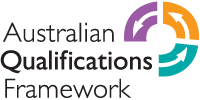CLET RPL is Helping Military and Police Transition with Conf...
This unit specifies the skills and knowledge required to assess the security needs of clients and provide documented advice on products and services to meet those needs. It includes conducting a security risk assessment of the client’s specific circumstances and operating environment and evaluating client satisfaction to improve service provision.
This unit is suitable for those using specialised knowledge to complete routine and non-routine tasks and using their own judgement to deal with predictable and sometimes unpredictable problems.
Legislative, regulatory or certification requirements apply in some states and territories to the provision of advice on security solutions, strategies, protocols and procedures. For further information, check with the relevant regulatory authority.





